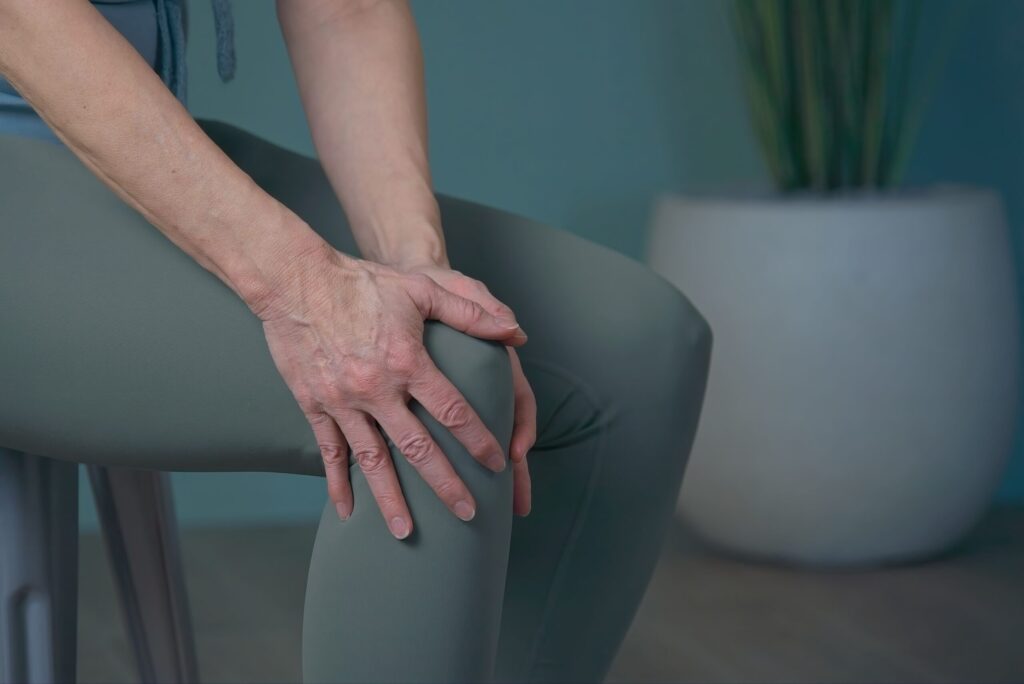Everyone moves.
Ever since we learned to walk, we don’t really question it anymore: How does it work? Why does it hold up?
We keep doing what we’ve always done — the same movements, in the same way — without always knowing if it’s respectful and effective for the body.
And one day, the problems show up…
“Moving well” is something you can learn. And it changes everything!
One day, the body says, “Enough.”

Moving is natural, but it’s not always optimal — especially when the conditions aren’t right.
Moving by forcing, compensating, and adapting is part of daily life for many active people. As long as things “hold up,” we keep going without asking questions.
And when pain appears, we often ignore it — sometimes because we don’t understand what’s happening, or because we’re afraid to hear things that would force us to change our habits.
But by pushing through for too long, the body eventually wears out: ligaments, tendons, joints, discs… nothing in the body lasts forever.
- a hip gives out,
- a knee complains,
- a back locks up.
Why? Because moving “the way we’ve always done it” doesn’t necessarily mean moving well.
And the more we push, the more we compensate… the higher the price we pay.
Undderstand, Feel, Respect
Moving smart isn’t about doing more sport or standing up straight.
It’s about understanding how your body really works.
It’s about feeling your natural alignments.
It’s about moving with awareness: sensing, adjusting, respecting.
It’s about practicing your sport while knowing your true limits — and using them as markers for efficiency and progress.
And in real life?

Learning to move well isn’t just for sport.
It changes everything in everyday life:
Lifting your child, carrying a heavy bag, repainting a wall, moving something from under the bed… all these actions, when done poorly, create compensations that can leave us out of commission for a while.
Knowing how to move means avoiding injuries — and staying independent for longer.
Some lessons are worth it because their value shows up in long-term freedom and autonomy.
In my world, being able to do anything with your body — without hurting yourself — is one of the greatest added values for a simpler, freer daily life.

"But won't it slow me down?"
Many people think that investing time to understand their body means slowing down or wasting time.
In reality, understanding how the body works optimally is part of a long-term strategy: investing to last.
And very often, those who take this time discover something surprising: less becomes more!
Learning about the body’s natural mechanics not only helps you know yourself better and prevent injuries, but also shows you just how unnecessary it is to waste excessive energy to achieve true quality in performance.
This slight slowing down — this “less” — ultimately brings better movement quality, greater range of motion, more comfort, and sometimes an unexpected inner calm.
In fact, taking the time to understand is like pausing to catch your breath before you act.
It’s stepping back so you can move forward more effectively.
I’ll be honest…
Impatience and the refusal to look inside yourself don’t go hand in hand with my approach.
And yet, I understand that choice. I understand it because I, too, had to learn to listen to my body instead of taking it for granted.
Today, as the years go by, just like everyone else, I have to live with my own limitations. But unlike twenty years ago, I’ve learned to understand them — and above all, to love them. Because that’s the only real way to move beyond them.
In my world, that’s what I call Organic Performance — intelligent movement.
We start with what is, we get to know it, then we free it.
And there, as if by magic, the blocks lift, the performance returns — often even better than before.
Your body needs you. In fact, it needs the best of you.
And when you think about it, what could be more logical?
An outer balance that starts from within — from a deep respect for yourself and all the kindness you already carry inside you.
Ready to go deeper?
Find out how to rediscover a new way of moving.

